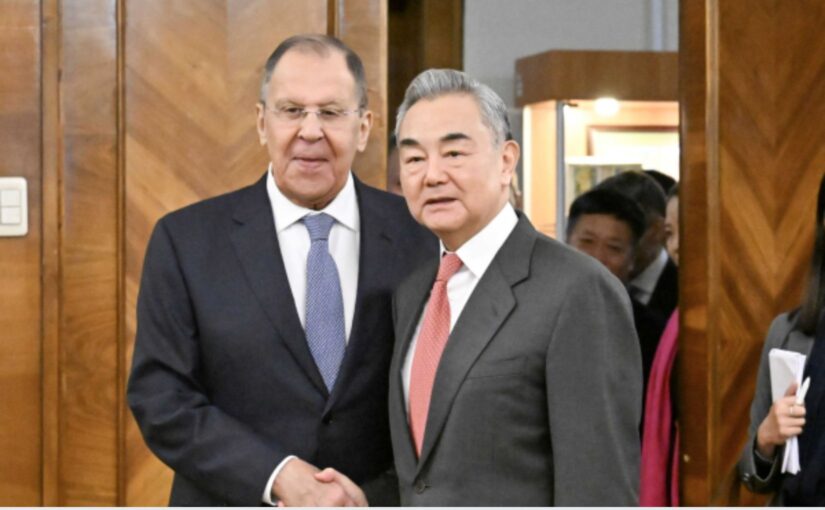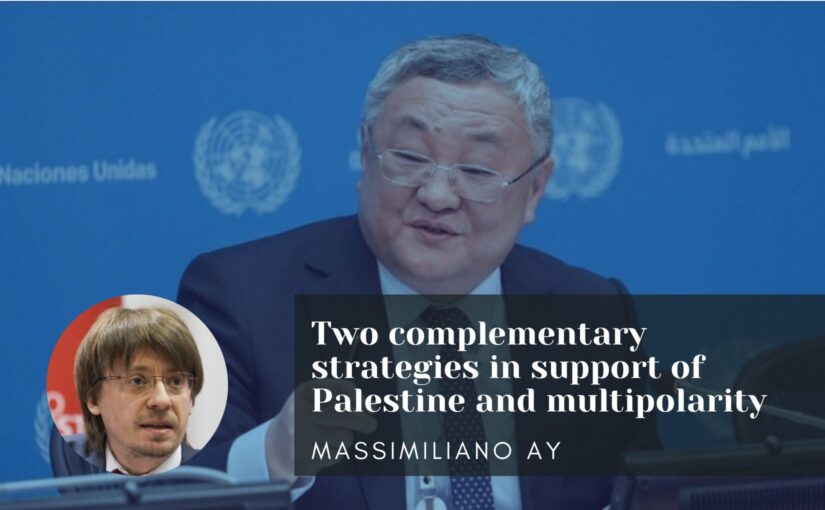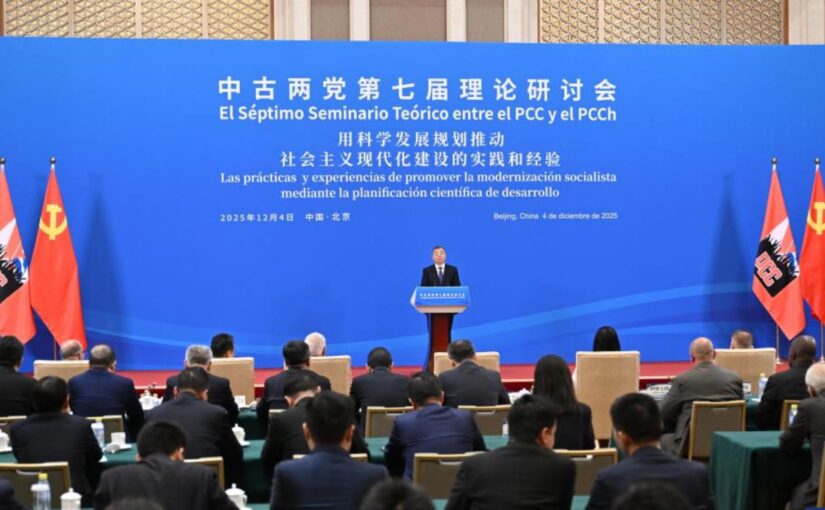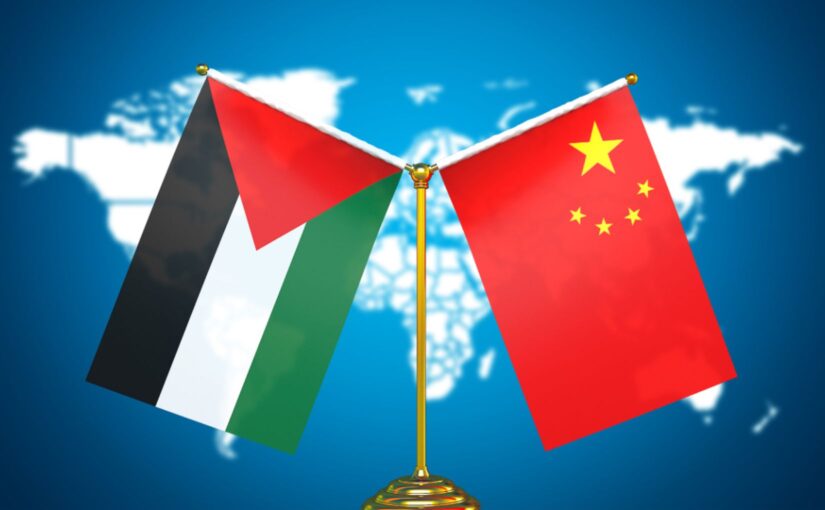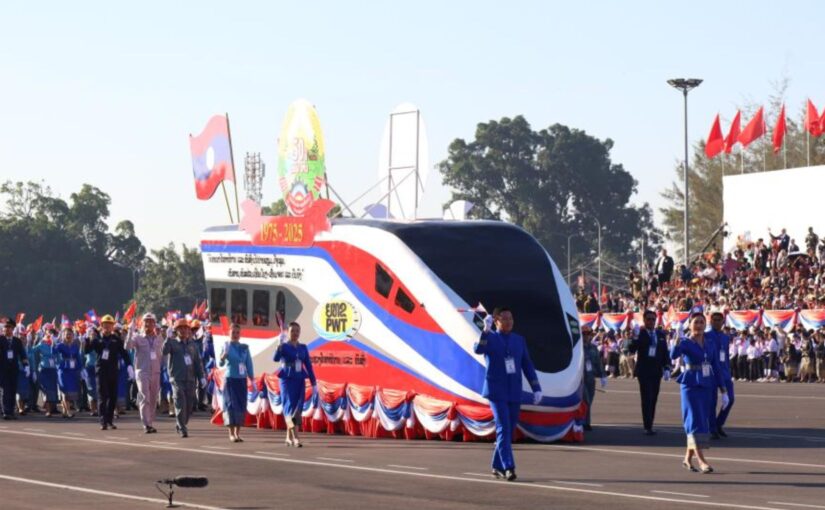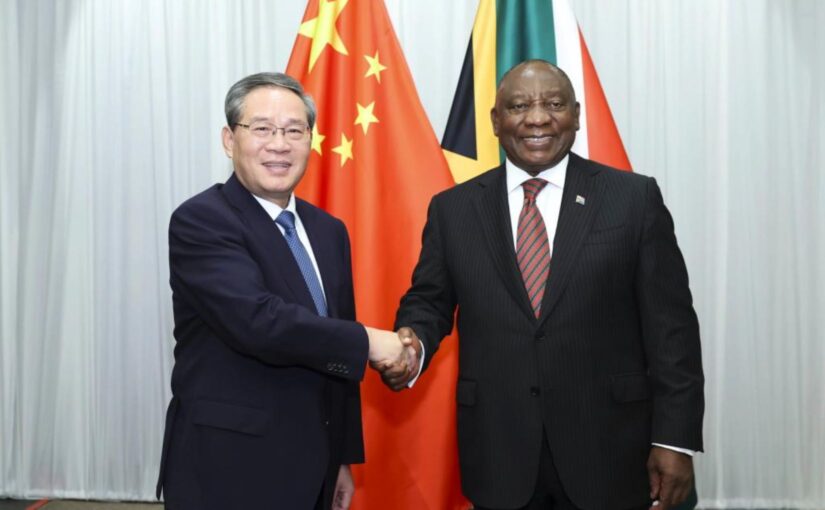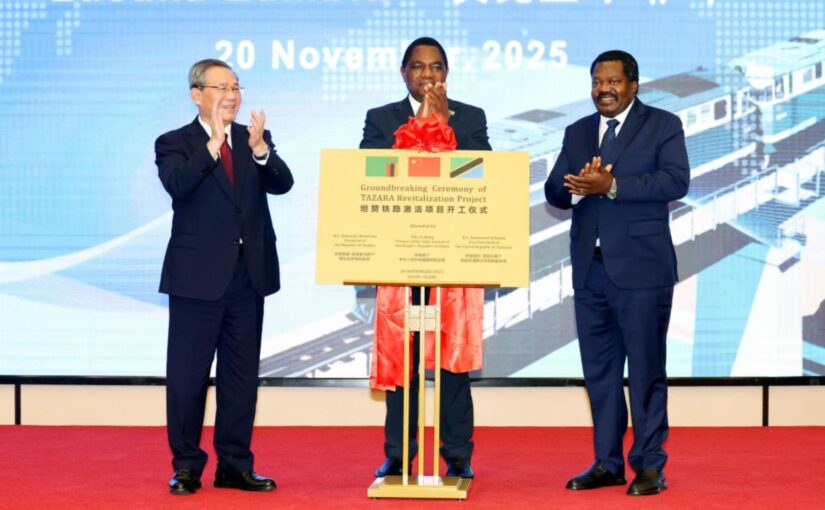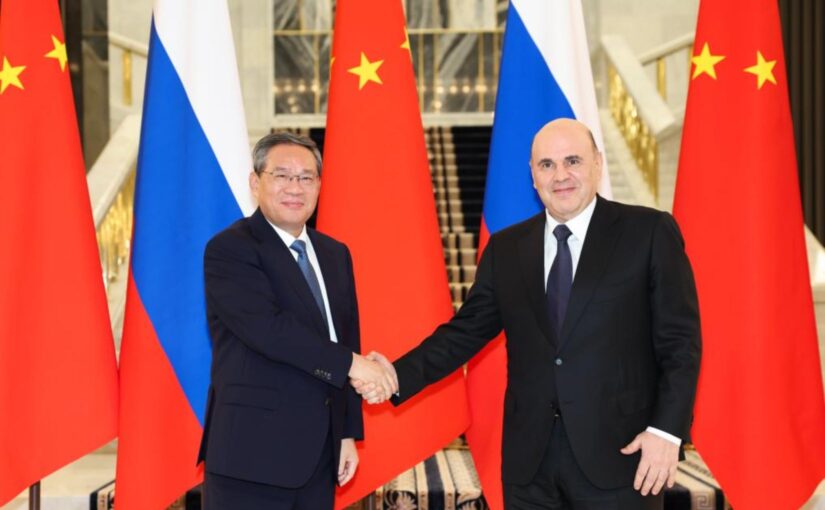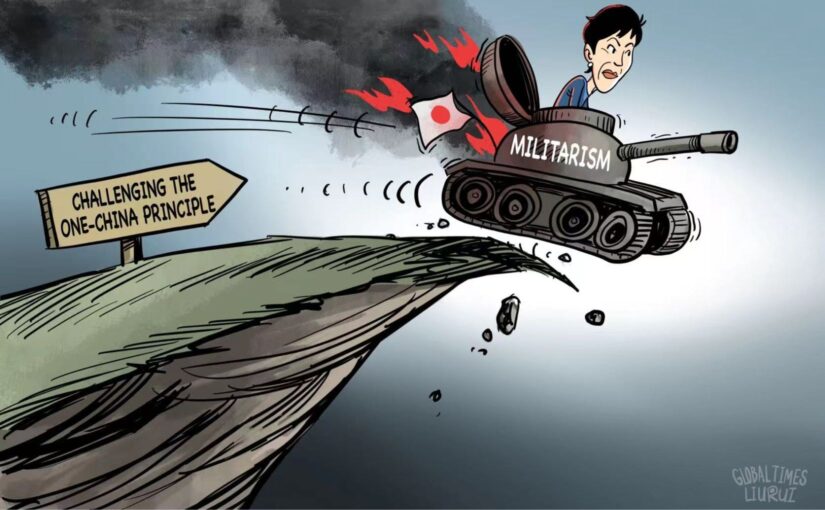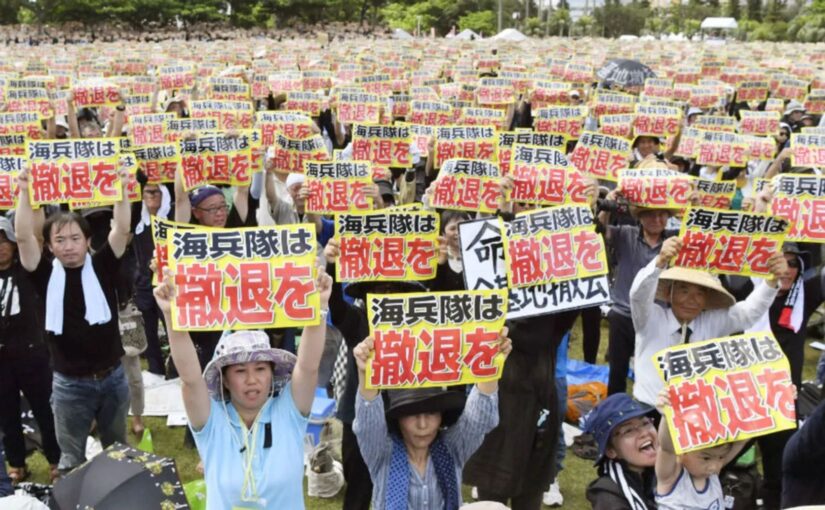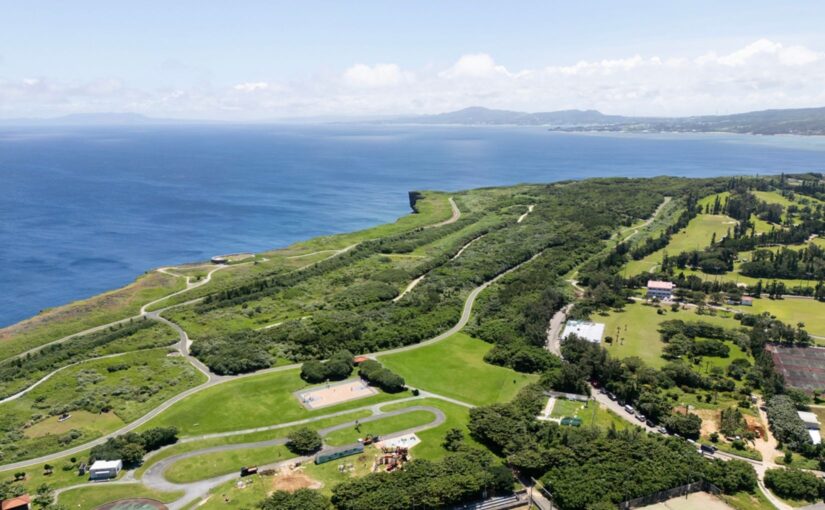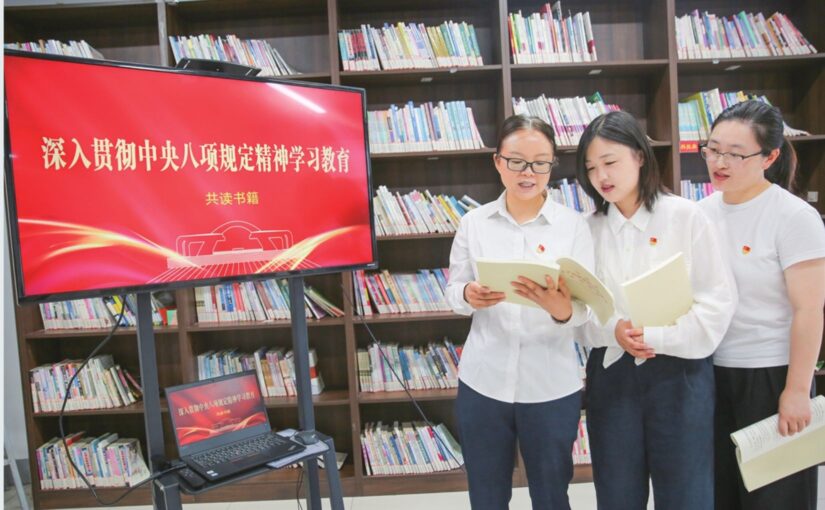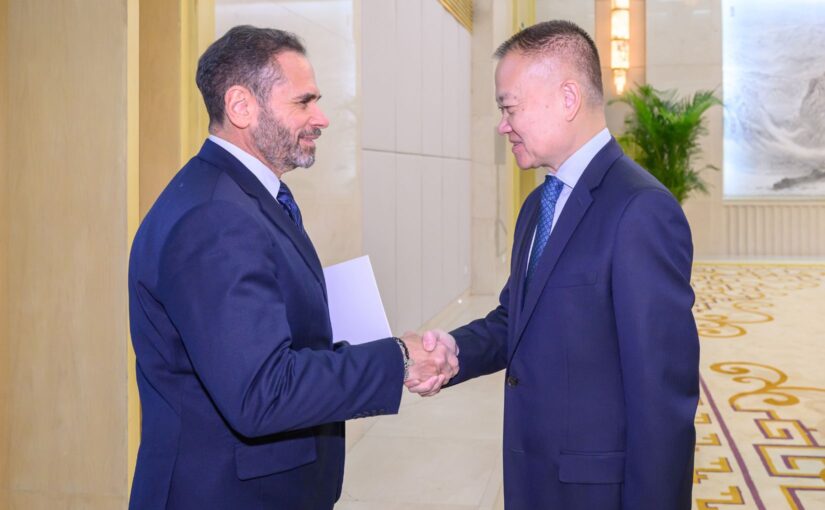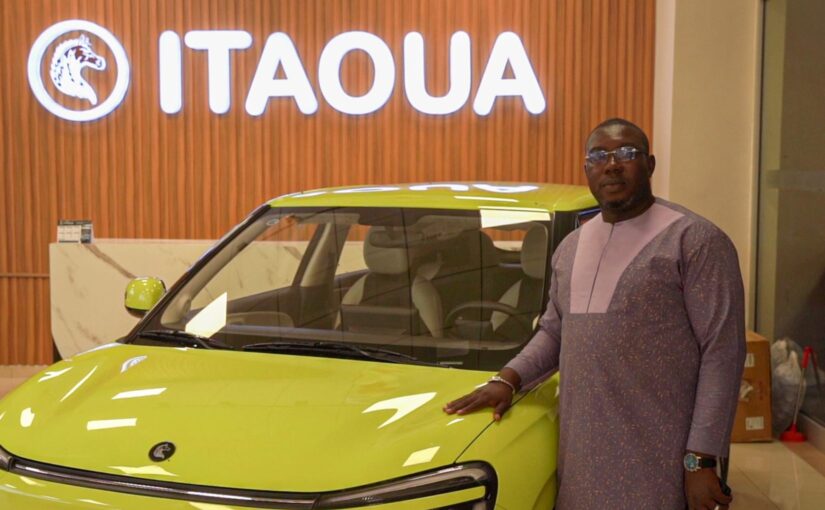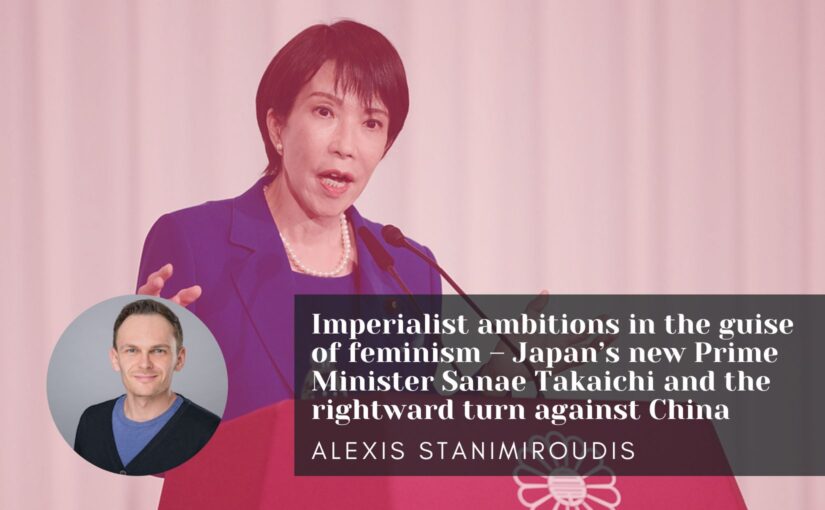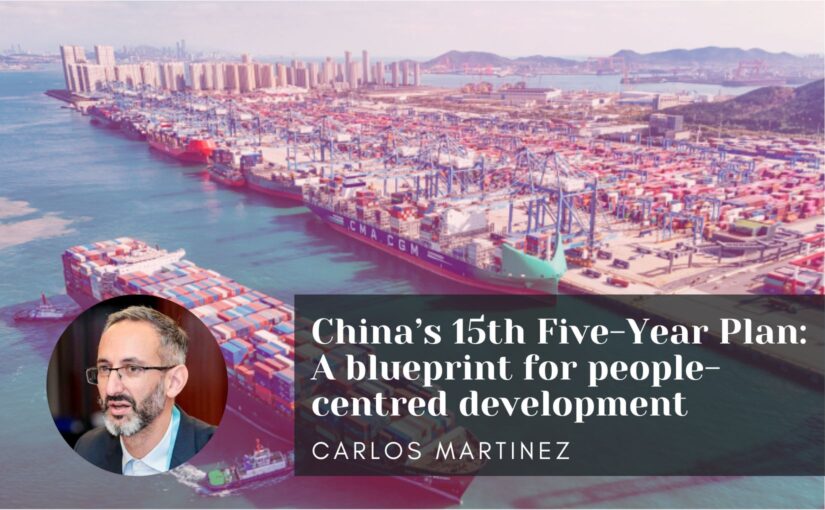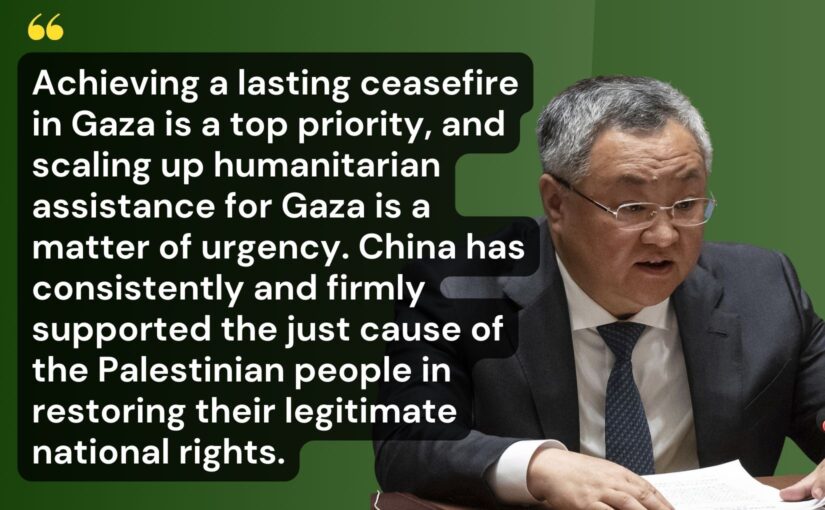The Lao People’s Democratic Republic (LPDR) celebrated its 50th founding anniversary on December 2. The establishment of the LPDR was the culmination of decades of heroic struggle, and immense sacrifice, against French colonialism, Japanese militarism, US imperialism and domestic reactionaries, under the leadership of first the Communist Party of Indochina and subsequently the Lao People’s Revolutionary Party (LPRP).
General Secretary of the Central Committee of the Communist Party of China (CPC) and President Xi Jinping sent a congratulatory message to General Secretary of the Central Committee of the LPRP and Lao President Thongloun Sisoulith marking the anniversary.
Xi Jinping noted that the LPRP has united and led the Lao people in persevering through hardships and forging ahead and achieved gratifying results in the cause of reform and opening up. The people’s livelihoods have continuously improved, and the country’s international and regional influence has been significantly enhanced. As a comrade and brother, China is deeply pleased with this. The Chinese side is firmly convinced that Laos will continue to follow a socialist path suited to its national conditions, successfully convene the 12th National Congress of the LPRP, and continuously open up new prospects for the development of the Party and the country.
Wang Huning, a member of the Standing Committee of the Political Bureau of the CPC Central Committee and Chairman of the National Committee of the Chinese People’s Political Consultative Conference (CPPCC), led a Chinese party and government delegation on an official visit to Laos from December 1 to 3, and attended celebrations marking the 50th anniversary.
During the visit, Wang met separately with Thongloun Sisoulith, Lao Prime Minister Sonexay Siphandone, and Lao National Assembly (NA) President Saysomphone Phomvihane. He also held talks with Sinlavong Khoutphaythoune, President of the Central Committee of the Lao Front for National Development (LFND).
During his meeting with Thongloun, Wang noted that China is willing to work with Laos to implement the strategic consensus reached by leaders of the two parties and countries, continue to firmly support each other on issues concerning their core interests and major concerns, including the Taiwan question, and accelerate the building of a high-standard, high-quality, and high-level China-Laos community with a shared future. Wang also briefed Thongloun on the fourth plenary session of the 20th CPC Central Committee and expressed China’s readiness to deepen exchanges with Laos on governance experience and jointly advance each country’s socialist path.
He thanked President Thongloun for the warm reception and conveyed Xi’s message of congratulations. He commended Laos for its achievements in national development under the leadership of the LPRP and conveyed his best wishes for the upcoming 12th Party Congress to be held in early 2026.
Thongloun congratulated China on the successful convening of the fourth plenary session of the 20th CPC Central Committee. He expressed Laos’ sincere appreciation for China’s long-term and valuable support, noting that bilateral relations are at their best in history and that cooperation has brought tangible benefits to the Lao people. He said Laos is committed to working with China to further enhance the building of a Laos-China community with a shared future.
During the visit, Wang attended the Lao National Day rally and military parade marking the 50th anniversary of the founding of the Lao People’s Democratic Republic, laid a wreath at the Tomb of the Unknown Soldiers, inspected the Vientiane Station of the China-Laos Railway, and attended the ceremony celebrating the railway’s fourth anniversary of operation.
Among other distinguished foreign guests attending the celebrations were:
- General Secretary of the Communist Party of Vietnam (CPV) Central Committee, To Lam
- Prime Minister of the Socialist Republic of Vietnam, Pham Minh Chinh (to attend the 48th Meeting of the Vietnam–Laos Intergovernmental Committee on Bilateral Cooperation)
- Senior Advisor to His Majesty the King and Vice President of the Cambodian People’s Party (CPP), Samdech Pichey Sena Tea Banh
- Member of the Political Bureau of the Central Committee of the Communist Party of Cuba (PCC) and Director General of Cuba’s Centre for Genetic Engineering and Biotechnology, Marta Ayala Ávila
- Deputy Chairman of the Federation Council of the Russian Federation, Nikolai Zhuravlyov
- Deputy Minister of Defence of the Russian Federation, Vasily Osmakov
A Xinhua News Agency report from the capital Vientiane said that Laos was marking the anniversary with pride and hope:
“In a comprehensive address marking the historic milestone, Thongloun Sisoulith reflected on the nation’s journey. He emphasised the unwavering commitment to the socialist ideal, the great national unity of all Lao ethnic groups, and the continuous strengthening of the people’s democratic regime.
“Thongloun outlined the nation’s steadfast foreign policy of peace, independence, friendship, and cooperation. He also stressed the goal of building a self-reliant economy, and following a balanced development path that harmonises economy, culture, society, and environment toward green and sustainable growth.”
The following articles were originally published on the website of the Chinese Foreign Ministry and by the Xinhua News Agency and the KPL Lao News Agency.
Xi Jinping Sends Congratulatory Message to General Secretary of the Central Committee of the Lao People’s Revolutionary Party and Lao President Thongloun Sisoulith on the 50th Anniversary of the Founding of the Lao People’s Democratic Republic
December 2 (MFA) – On December 2, 2025, General Secretary of the Central Committee of the Communist Party of China (CPC) and President Xi Jinping sent a congratulatory message to General Secretary of the Central Committee of the Lao People’s Revolutionary Party (LPRP) and Lao President Thongloun Sisoulith on the 50th anniversary of the founding of the Lao People’s Democratic Republic.
Xi Jinping noted that the LPRP has united and led the Lao people in persevering through hardships and forging ahead, and achieved gratifying results in the cause of reform and opening-up. The people’s livelihoods have continuously improved, and the country’s international and regional influence has significantly enhanced. As a comrade and brother, China is deeply pleased with this. The Chinese side is firmly convinced that Laos will continue to follow a socialist path suited to its national conditions, successfully convene the 12th National Congress of the LPRP, and continuously open up new prospects for the development of the Party and the country.
Xi Jinping emphasized that during General Secretary Thongloun Sisoulith’s successful visit to China in September this year, he and General Secretary Thongloun Sisoulith reached new strategic common understandings on deepening the building of the China-Laos community with a shared future. China has always prioritized Laos in its neighborhood diplomacy and stands ready to work with Laos to take the 65th anniversary of the establishment of diplomatic relations between China and Laos next year as an opportunity to carry forward the traditional friendship, strengthen solidarity and cooperation, continuously deepen and substantiate the China-Laos comprehensive strategic cooperation in the new era, bring more benefits to the two peoples, and make greater contributions to peace and development in the region and the world.
China’s top political advisor pays official visit to Laos
VIENTIANE, Dec. 3 (Xinhua) — China’s top political advisor Wang Huning led a Chinese party and government delegation on an official visit to Laos from Dec. 1 to 3, and attended celebrations marking the 50th anniversary of the founding of the Lao People’s Democratic Republic.
Wang, a member of the Standing Committee of the Political Bureau of the Communist Party of China (CPC) Central Committee and chairman of the National Committee of the Chinese People’s Political Consultative Conference (CPPCC), and his delegation arrived here at the invitation of the Lao People’s Revolutionary Party (LPRP) Central Committee and the Lao government.
During the visit, Wang met separately with Thongloun Sisoulith, general secretary of the LPRP Central Committee and Lao president, Lao Prime Minister Sonexay Siphandone, and Lao National Assembly (NA) President Saysomphone Phomvihane. He also held talks with Sinlavong Khoutphaythoune, president of the Central Committee of the Lao Front for National Development (LFND).
During his meeting with Thongloun, Wang noted that China is willing to work with Laos to implement the strategic consensus reached by leaders of the two parties and countries, continue to firmly support each other on issues concerning their core interests and major concerns, including the Taiwan question, and accelerate the building of a high-standard, high-quality, and high-level China-Laos community with a shared future. Wang also briefed Thongloun on the fourth plenary session of the 20th CPC Central Committee and expressed China’s readiness to deepen exchanges with Laos on governance experience and jointly advance each country’s socialist path.
Thongloun congratulated China on the successful convening of the fourth plenary session of the 20th CPC Central Committee. He expressed Laos’ sincere appreciation for China’s long-term and valuable support, noting that bilateral relations are at their best in history and that cooperation has brought tangible benefits to the Lao people. He said Laos is committed to working with China to further enhance the building of Laos-China community with a shared future, firmly adheres to the one-China principle, and resolutely opposes any erroneous remarks or actions that interfere in China’s internal affairs.
During his meeting with Sonexay, Wang said that under the strategic guidance of leaders of both parties and countries, China-Laos comprehensive strategic cooperation continues to make steady progress, adding that China is ready to deepen strategic coordination with Laos and set an example for building a community with a shared future among neighboring countries.
Sonexay reaffirmed Laos’ firm support for China in safeguarding its core interests, and expressed his country’s willingness to enhance all-round, mutually beneficial cooperation with China and jointly build a high-standard, high-quality, and high-level Laos-China community with a shared future.
During his meeting with Saysomphone, Wang said that the 65th anniversary of diplomatic relations next year presents an opportunity for both sides to deepen practical cooperation across various sectors and inject fresh momentum into their respective socialist modernization efforts. Saysomphone noted that the Laos-China community with a shared future has achieved remarkable progress and expressed Laos’ readiness to strengthen legislative exchanges with China to further advance bilateral friendship and practical cooperation.
During his talks with Sinlavong, Wang said that the CPPCC is willing to work with the LFND to implement the important consensus reached by the two countries’ top leaders, enhance exchanges and cooperation, and tell the story of friendship between the two countries well, so as to play an active role in advancing the building of a China-Laos community with a shared future. Sinlavong said Laos is willing to learn from China’s governance experience and that the LFND will strengthen cooperation and exchanges with the CPPCC to further consolidate bilateral relations.
During the visit, Wang attended the Lao National Day rally and military parade marking the 50th anniversary of the founding of the Lao People’s Democratic Republic, laid a wreath at the Tomb of the Unknown Soldiers, inspected the Vientiane Station of the China-Laos Railway, and attended the ceremony celebrating the railway’s fourth anniversary of operation.
President Thongloun Receives Senior Chinese Delegation
December 3 (KPL) – Lao President and General Secretary of the Lao People’s Revolutionary Party (LPRP), Comrade Thongloun Sisoulith, met Comrade Wang Huning, a member of the Standing Committee of the Political Bureau of the Communist Party of China (CPC) and Chairman of the Chinese People’s Political Consultative Conference (CPPCC), in Vientiane on 1 December 2025.
Wang is leading a high-level Chinese Party-State delegation on an official goodwill visit to Laos from 1–3 December and is attending events commemorating the 50th anniversary of the establishment of the Lao PDR.
President Thongloun welcomed the delegation and said the visit underscores the strength of the Laos–China relationship. He noted that China’s participation in the anniversary celebrations reflects continued support for Laos and reinforces the countries’ comprehensive strategic partnership. He also highlighted progress in cooperation between the Lao Front for National Construction (LFNC) and the CPPCC, and described the Laos–China Railway as a project of long-term strategic significance.
The President expressed appreciation for China’s ongoing support to Laos, both historically and in current development efforts. He reiterated Laos’ consistent adherence to the One-China principle and welcomed the congratulatory message sent by Chinese President Xi Jinping on the national anniversary.
Wang thanked President Thongloun for the warm reception and conveyed Xi’s message of congratulations. He commended Laos for its achievements in national development under the leadership of the LPRP and conveyed his best wishes for the upcoming 12th Party Congress in early 2026.
Wang also briefed the Lao leader on his meetings with the Prime Minister and the President of the LFNC, expressing confidence that the guidance of the two Parties’ top leaders will continue to steer bilateral cooperation toward deeper and more effective progress.
Laos marks 50th founding anniversary with pride, hope
VIENTIANE, Dec. 2 (Xinhua) — Laos is alive with celebrations honoring five decades of steady national growth as the country marks the 50th anniversary of the founding of the Lao People’s Democratic Republic on Tuesday.
The 50th anniversary celebrations began Tuesday morning with a grand parade, broadcast live on television, as residents across the country joined the festivities.
In a comprehensive address marking the historic milestone, Thongloun Sisoulith, general secretary of the Lao People’s Revolutionary Party Central Committee and Lao president, reflected on the nation’s journey.
He emphasized the unwavering commitment to the socialist ideal, the great national unity of all Lao ethnic groups, and the continuous strengthening of the people’s democratic regime.
Thongloun outlined the nation’s steadfast foreign policy of peace, independence, friendship, and cooperation. He also stressed the goal of building a self-reliant economy, following a balanced development path that harmonizes economy, culture, society, and environment toward green and sustainable growth.
Namfon, a 20-year-old student, expressed hope that Laos will continue to develop in the years ahead, noting that the celebrations serve as a reminder for the next generation to preserve the nation’s achievements and build on the prosperity achieved so far.
Proudly celebrating the nation’s development on this milestone, Noyna, a resident of Vientiane, said that she is firmly committed to contributing and working alongside the leaders to help further develop the country.
The celebrations were broadcast live on television and online, attracting a large audience who actively participated virtually. Netizens shared similar feelings of gratitude and hope.
In the evening, a drone display and fireworks will light up the sky to mark the occasion.
“The drone display rehearsals circulating online went viral a few days ago, offering a glimpse of the spectacular show for the Lao people. It was grand and exciting, and I can’t wait to see it in person,” said Andy.
To mark the occasion, senior Party and government leaders, led by Thongloun, paid tribute at key national monuments on Monday.
Senior leaders and officials from friendly countries attended the celebrations. Leaders from various countries also sent congratulatory messages.
